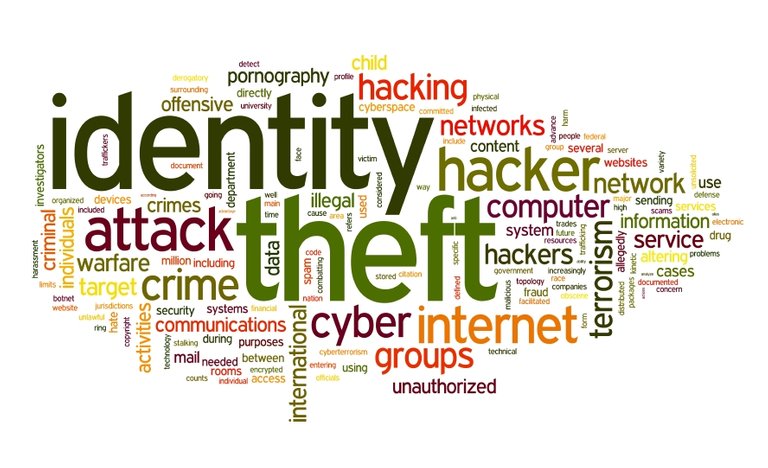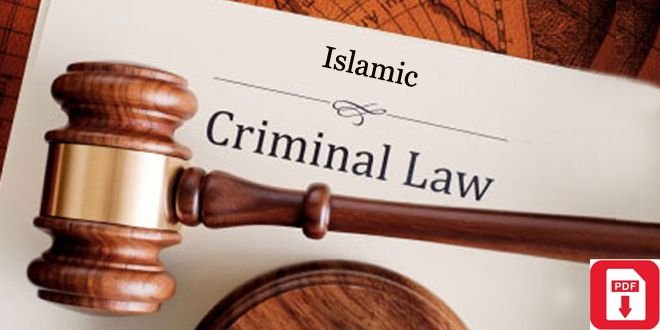Gross inequalities of income and accumulation of unjust wealth as widely existing amongst individuals and nations of the world are not in consonance with the spirit of Islam, especially as it has a unique commitment to human brotherhood and to social and economic justice. These phenomenon could only destroy rather than foster the feelings of brotherhood that Islam wishes to create. There is no reason why they should remain concentrated in a few hands by depriving others, particularly because all resources are "gifts of God to all human beings" according to the Quran (Chapter 2 vs 29).
 source
source
The variations in economic crimes such as advance fee fraud, embezzlement, money laundering, bribery and cyberspace fraud do not in any way seek to guarantee security of individuals or public properties. Contrarily, they substantially add to the economic distress while also subtracting resources meant for individual and national economic development. They represent criminal offences against properties and are therefore regarded as wrongful modes of earning.
The ways of making money approved and disapproved by the Quran are Halal (allowed) and Haram (disallowed) respectively. The Quran says:
"and do not consume one another's wealth illicitly" (Chapter 2 vs 188)
 source
source
Whatever system or practices causes a gain for one man but causes loss for another is forbidden by Islamic principle. These two elements (gain and loss) are featured in the various corrupt economic practices mentioned above. So, they are all regarded as illicit means of earning.
The criminal practice of smuggling public wealth out of the nation's economy - money laundering, which is the peak of global crime is calculated as an act of stealing. Being sourced from public funds, which must not be illegally consumed nor diverted, the Islamic law legislates against it just like the other fraudulent practices. The Islamic law does not tolerate criminally generated profits from joining the whirlwind of global financial flow because they came from "dirty sources" and can never be clean even if and when integrated into legal economy.
The Quran says:
"the illicit can never equal the illicit, no matter how attractive the plentifulness of the illicit is... (Chapter 5 vs 100).
 source
source
In a nutshell, Islam denounces all these corrupt practices. However, when these crimes are noticed in overwhelming proportion within a nation, they tend to be potent enough in damaging the (economic) goodwill (image) of such a national environment. These are the results of the absence of an ideal economic practice and justice. It then becomes necessary to correct such a negative image, when it inevitably occurs. Meanwhile, Islam does not approve of wastefully expending on such an elaborate project, such as that embarked upon some years back by the Nigerian government under the Obasanjo/Atiku administration, to which millions of dollars were being deployed.
From an Islamic view, the Nigerian situation is demanding for an effective scheme aimed at cleaning up her image. This is necessary because despite the spirit of resilience displayed by most Nigerians, her citizens hover at the edge of survival, living in slums and doing menial jobs in its massive informal economy; extortion, picking garbage, prostitution e.t.c.
Fellow steemians, if this piece of information has helped in broadening your understanding of the Islamic principles and philosophy, kindly follow, upvote and resteem and do not forget to visit my blog soonest for another interesting and educative information focusing on Islamic jurisprudence.
Very clear thanks.
@knightgh
@harenz. Thanks for helping me to get a better understanding of islamic law. It was very educative i must say
I'm glad it helped shape up your understanding
Wow, islamic laws are quite cool. I think i should Do more Research on this
Make some quality research and you will definitely not regret it. Thanks for stopping by to visit my blog
Islam means peace. Surely Allah is to be glorified
Alhamdulillah I'm a Muslim
@harenz Very educative post. Good to know that Islam frowns upon such corrupt practices.